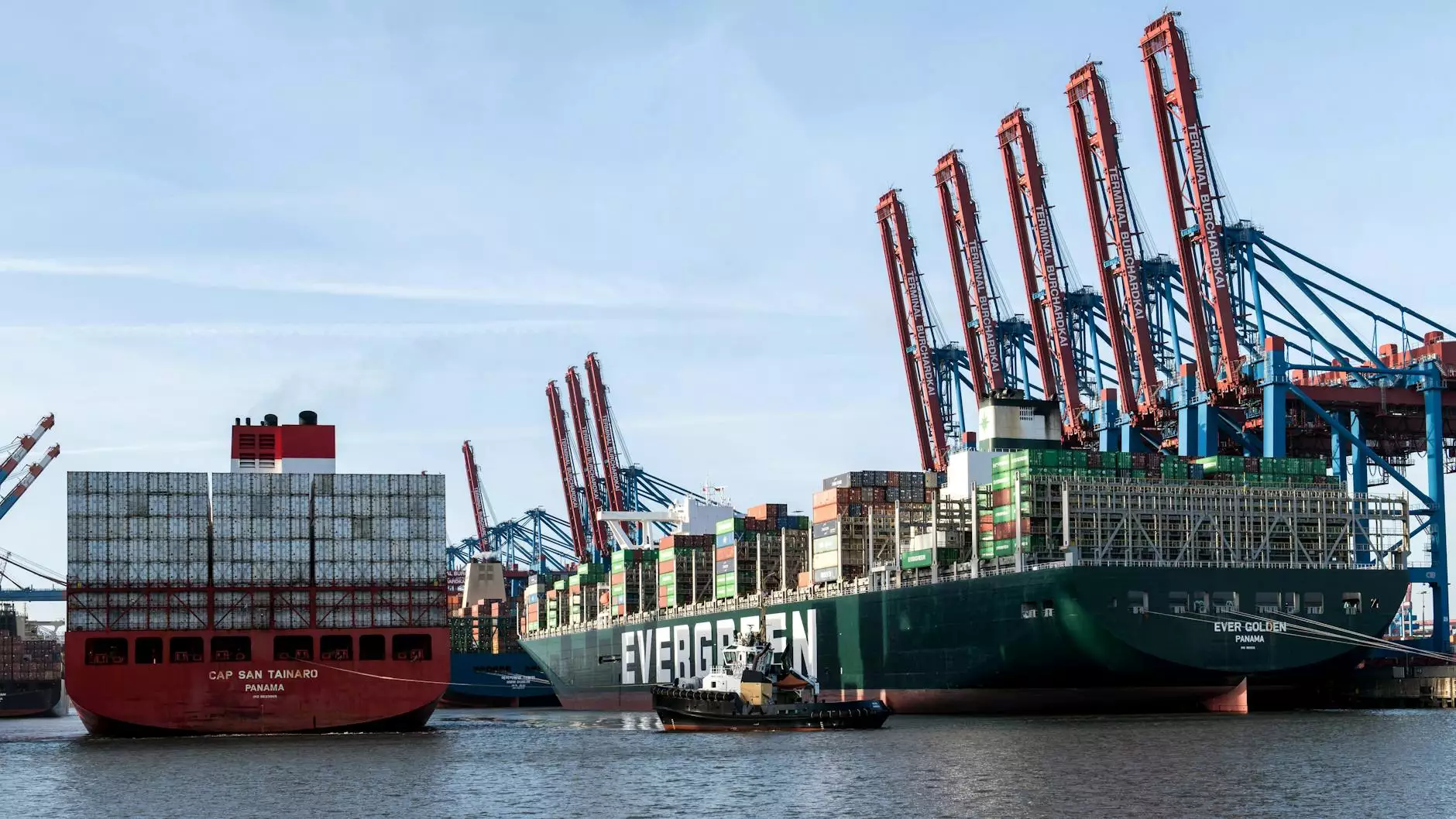Understanding and Optimizing Quote Freight Rate for Your Business

In the competitive world of logistics and supply chain management, understanding how to effectively manage freight costs is crucial for any business. Obtaining a quote freight rate can make a significant difference in your overall operational efficiency and profitability. In this comprehensive guide, we will explore the intricacies of freight rates, the factors that affect them, and how to leverage this knowledge to optimize your business strategy.
What is a Freight Rate?
A freight rate is the charge levied by a carrier for the transportation of cargo. This rate varies based on numerous factors, such as:
- Distance: The greater the distance between the shipping origin and destination, the higher the freight rate.
- Weight: Heavier shipments typically incur higher charges.
- Type of Goods: Certain goods require special handling or transportation methods, affecting the quote.
- Mode of Transport: Different modes of transport (air, sea, road, rail) have varying costs.
- Time Sensitivity: Expedited shipping options come at a premium compared to standard rates.
The Importance of Obtaining Accurate Freight Rates
Obtaining an accurate quote freight rate is essential for several reasons:
- Budgeting: It aids in precise financial forecasting and helps in making informed budget decisions.
- Comparative Analysis: Enables businesses to compare costs between different carriers and choose the most cost-effective option.
- Negotiation Power: With up-to-date knowledge of freight rates, businesses can negotiate better deals with suppliers and carriers.
- Operational Efficiency: Knowing the freight rates helps in streamlining logistics processes, reducing delays, and improving delivery times.
Steps to Obtain a Quote Freight Rate
Obtaining a quote freight rate involves several steps:
1. Define Your Shipping Needs
Identify what you are shipping, including the type, weight, and dimensions of the cargo. This information is vital for accurate rate quotes.
2. Choose the Right Mode of Transportation
Decide whether to ship via air, sea, road, or rail. Each mode has its own pricing structure and delivery timelines, which can significantly influence your quote.
3. Gather Multiple Quotes
Contact various shipping companies or use online freight quote tools to gather multiple estimates. This will provide a broader perspective on the typical rates for your shipping needs.
4. Understand Additional Costs
Inquire about additional fees such as fuel surcharges, handling fees, customs duties, and insurance – all of which can impact the final cost.
5. Analyze and Compare Quotes
Once you have multiple quote freight rates, analyze them carefully. Look beyond the base price and consider factors such as delivery time, reliability, and additional services offered.
Factors Affecting Freight Rates
Understanding the factors that influence freight rates allows businesses to strategize effectively. Some key factors include:
Supply and Demand
Freight rates are significantly affected by the balance of supply and demand in the market. During peak seasons, rates may increase due to heightened demand for shipping services.
Fuel Prices
The cost of fuel directly impacts transportation costs. When fuel prices rise, so too do freight rates, leading to increased pricing for consumers.
Carrier Operations
Every carrier has different operational costs and pricing strategies. Carriers with more efficient logistics typically offer more competitive rates.
Geopolitical Factors
Political instability, changes in tariffs, or regulations can influence international shipping rates. Staying informed about global events can help in anticipating changes in freight costs.
Shipping Centers: The Backbone of Freight Movement
Shipping centers play a pivotal role in managing the logistics of moving goods across regions. Here are key aspects of shipping centers:
Services Offered
Modern shipping centers offer a range of services including:
- Storage: Facilities for temporary holding of cargo before shipping.
- Packaging: Professional packing services to ensure goods are secure during transit.
- Pick and Pack: Fulfillment services that prepare goods for shipment upon order.
- Customs Clearance: Assistance with navigating the complexities of international shipping regulations.
Choosing the Right Shipping Center
Selecting an appropriate shipping center can enhance your logistics strategy. Consider factors such as:
- Location: Proximity to shipping ports and transportation hubs can reduce costs and transit times.
- Reputation: Research customer reviews and testimonials to gauge reliability.
- Technology: Modern shipping centers utilize advanced technology for tracking and managing shipments.
Business Consulting for Freight Optimization
Engaging with business consulting services can significantly enhance your ability to manage freight logistics. Here’s how:
Expert Insights
Consultants bring valuable experience and insights that can help you navigate complex logistics challenges.
Cost Analysis
Consultants can perform thorough cost analyses to identify inefficiencies in your shipping processes, potentially revealing areas where costs can be reduced.
Supplier Negotiation
Experienced consultants can assist in negotiating better terms with suppliers and carriers, leveraging their industry knowledge to secure favorable deals.
Vehicle Shipping: Key Considerations
For businesses that involve vehicle shipping, understanding specific challenges and methods is critical:
Types of Vehicle Shipping
Vehicle shipping can be categorized into:
- Open Transport: Cost-effective method where vehicles are transported on open trailers.
- Enclosed Transport: More expensive option that offers protection against weather and road debris.
Preparing for Vehicle Shipping
To ensure a smooth vehicle shipping process, consider the following:
- Documentation: Ensure all necessary documents, such as title and registration, are in order.
- Condition of Vehicle: Document the condition of the vehicle before shipping to address any potential claims.
- Insurance: Verify that the shipping company provides adequate insurance coverage.
Conclusion
In conclusion, mastering the intricacies of obtaining a quote freight rate and understanding its impact on your business is essential in today’s logistics-dominated market. From selecting the right shipping centers and consulting services to optimizing vehicle shipping, each element plays a vital role in enhancing your operational efficiency. As you expand your understanding of these areas, you position your business for success, allowing you to navigate the complex landscape of freight logistics with confidence and ease.
At freightrate.com, we are committed to assisting businesses like yours in unlocking the full potential of their logistics strategies. Contact us today to learn more about how we can help you obtain the best freight rates and streamline your shipping operations.








